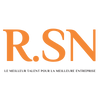Job Description
Background
UN Women, grounded in the vision of equality enshrined in the Charter of the United Nations, works for the elimination of discrimination against women and girls; the empowerment of women; and the achievement of equality between women and men as partners and beneficiaries of development, human rights, humanitarian action and peace and security.
The United Nations Entity for Gender Equality and the Empowerment of Women (UN WOMEN), grounded in the vision of equality enshrined in the United Nations Charter, works for the elimination of discrimination against women and girls, the empowerment of women, and the achievement of equality between women and men as partners and beneficiaries of development, human rights, humanitarian action, and peace and security.
To support member states in implementing the 2030 Agenda, the UN Women’s Flagship Programme Initiative Making Every Woman and Girl Count (Women Count) aims to affect a radical shift in the production, availability, accessibility and use of quality data and statistics on key aspects of gender equality and women’s empowerment. Women Count, delivered significant results in scaling up work on gender statistics availability, accessibility, and use during Phase I of its implementation. Phase II of Women Count (2022-2025), which coincides with gender data being elevated as one of seven systemic outcomes in UN Women’s 2022-2025 Strategic Plan, is the key UN Women programmatic tool to support Member States to strengthen the mainstreaming of gender perspectives in statistics and to monitor the Sustainable Development Goals (SDGs).
In Senegal, Women Count is an initiative meant to strengthen the capacity of the Government and Non-State Actors to produce and use gender data and statistics to inform and monitor the implementation of Senegal’s gender-related commitments in the 2030 Agenda. Its implementation started in 2019 and is in its second phase. The main partners are the Agence Nationale de la Statistique et de la Démographie (ANSD) and the division of the Ministers in charge of gender.
The Programme Specialist – Gender Statistics will report directly to the UN Women Representative and work under her overall guidance and direction. The Programme Specialist – Gender Statistics will also work closely with the UN Women Regional Gender Statistics specialist and the HQ Women Count programme team. The Programme Specialist – Gender and Statistics will contribute to ensuring the effective planning, implementation, management and reporting of the Women Count project in Senegal. She/he will also provide technical assistance and capacity development to partners as well as lead resource mobilization, knowledge management and communication efforts.
She/he will work in close collaboration with the programme and operations team, UN Women HQ staff, the UN Women regional office, Government officials, multi- and bi-lateral donors, and civil society to ensure the successful implementation of the UN Women programme under this portfolio.
Duties and Responsibilities
Under the supervision of the UN Women Senegal Representative, the Programme Specialist will have the following responsibilities and tasks:
Manage the implementation and management of the Women Count project
- Design and formulate programme/project documents including proposals, Partner Agreements, Memorandums of Understanding (MoU) among others;
- Develop the annual workplan and budget and manage their implementation;
- Manage the technical implementation of the project ensuring synergies with other teams;
- Oversee and review the budget and proposed activities as needed ensuring consistency with the objectives of the global programme and in compliance with agreed timelines;
- Develop procurement plans and oversee procurement processes in accordance with corporate rules and regulations;
- Organize Project Steering Committee, project review and/or evaluation meetings, as needed.
Manage technical assistance and capacity development to project/programme partners
- Draft inputs to country strategic documents, briefs, policy dialogues and other documents related to Gender Statistics;
- Identify capacity development needs of partners and provide technical assistance, advisory support, and capacity development to partners on Gender Statistics, including strategic direction, training and positioning of gender statistics in national policies, plans and strategies;
- Facilitate coordination mechanisms of the project by providing technical assistance;
- Provide technical support to ensure quality of the gender SDG indicators
- Provide technical support to data collection (surveys, census, administrative data) where gender statistics are to be produced (e.g the coming Gender and Environment survey)
Manage the monitoring and reporting of the programme/project
- Manage the monitoring and reporting of programme/ project implementation and finances using results-based management tools;
- Provide guidance to the project team and partners on Results Based Management tools and performance indicators;
- Oversee field missions and prepare/review reports on monitoring missions;
- Oversee regular collection and quality reporting of data and information about the impact of the project, timely prepare and submit high-quality quarterly updates and contribute to the Women Count donor annual report and other UN Women reports as needed.
Manage the people and financial resources of the Gender Statistics programme
- Manage the programme budget and resources, and draft financial reports;
- Forecast needs related to financial, Human Resources, logistics and administration activities, in consultation with the Manager;
- Supervise Programme Analysts and Technical Specialists; Mentor and coach personnel and conduct performance assessments;
- Oversee recruitment processes, as necessary.
Build partnerships and support in developing resource mobilization strategies
- Develop and manage the partnerships needed to implement Women Count in Senegal, including with governments, donors, international agencies, civil society and philanthropic organizations and the private sector;
- Strengthen UN Women’s partnerships with key regional and national stakeholders, including KNBS, UN agencies, civil society organizations and other data collecting organizations in the country in order to present a wide range of relevant data on gender equality and women’s rights to contribute to the regional and thematic monitoring of SDGs, other publications and other associated communications materials;
- Develop and implement partnerships and resource mobilization strategies;
- Finalize relevant documentation on donors and potential opportunities for resource mobilization;
- Analyze and research information on donors, prepare substantive briefs on possible areas of cooperation, identification of opportunities for cost sharing.
Contribute to inter-agency coordination to achieve a coherent and aligned presence for Gender Statistics in Senegal
- Provide technical inputs to technical inter-agency discussions related to SDGs indicators and monitoring in the region;
- Provide technical support to the Representative and Deputy Representative on inter-agency coordination related activities by attending meetings, events, and participating in groups and committees as needed;
- Coordinate with other UN agencies, government departments, donors and NGOs to ensure the projects’ capacity development programme is harmonized and aligned with other in-country efforts;
- Participate and/or represent UN Women in in meetings, policy dialogues and inter-agency policy and statistical forums.
Manage advocacy, knowledge management and communication efforts
- Develop and review background documents, briefs and presentations related to the Gender Statistics;
Identify and implement advocacy and resource mobilization opportunities in line with the Women Count global programme Outreach and Advocacy Plan and the Resource Mobilization strategy; - Develop knowledge management strategies, products and methodologies on Gender Statistics in line with the Women Count global programme Data and Knowledge Management plan;
- Codify best practices and lessons learned to guide project improvement and strategic planning.
The incumbent performs other duties within their functional profile as deemed necessary for the efficient functioning of the Office and the Organization.
Key Performance Indicators
- Timely and quality of programme delivery in line with Women Count budget and workplans, and in line with all UN Women operational rules and regulations, including security
- Timely and quality monitoring and reporting of activities;
- Quality of reporting, including best practices and lessons learned documented and circulated;
- Quality of advocacy, communication and knowledge management initiatives;
- Adherence to UN Women rules, regulations, policies and procedures in all operations;
- Strong relationships with various partners and stakeholders as relevant to role;
- Relations with partners and stakeholders;
- Effective initiative and participation in further resource mobilization of the gender statistics project.
- Regular communication with other agencies and partners;
- Supervisory/Managerial Responsibilities: The Program specialist will supervise and lead one program analyst.
Competencies
Core Values:
- Integrity;
- Professionalism;
- Respect for Diversity.
Core Competencies:
- Awareness and Sensitivity Regarding Gender Issues;
- Accountability;
- Creative Problem Solving;
- Effective Communication;
- Inclusive Collaboration;
- Stakeholder Engagement;
- Leading by Example.
Please visit this link for more information on UN Women’s Values and Competencies Framework:
Functional Competencies
- Good understanding of and commitment to gender equality and women’s empowerment and its policy implications;
- Ability to synthesize program performance data and produce analytical reports to inform management and strategic decision-making;
- Strong knowledge of gender statistics and familiarity with the SDGs;
- Strong analytical and writing skills;
- Ability to identify and analyze trends, opportunities and threats to fundraising and develop strategies.
- Demonstrated ability to work in a team and in a cooperative and productive fashion both with internal and external colleagues;
- Ability to work under pressure on multiple projects whilst maintaining high-quality and timeliness;
Education and Certification
- Master’s degree or equivalent in Statistics, Demography, Economics, Social Sciences, or a related field is required.
- A first-level university degree in combination with two additional years of qualifying experience may be accepted in lieu of the advanced university degree.
- A project/programme management certification would be an added advantage
Experience
- At least 7 years of technical experience in Gender Statistics in the context of a National Statistical System;
Work experience at the national or international level in design, planning, implementation, monitoring and evaluation of development projects; - Experience of the Senegal national Statistical System is a significant added value;
- Experience in producing high quality research or policy papers on gender and or gender data at national level or international level
- Experience coordinating and liaising with government agencies and/or donors is an asset;
- Experience working in the UN System is an asset;
- Good hands-on knowledge of statistical software (Excel, SPSS, STATA, etc.)
Languages
- Fluency in French and a good command of English (written and spoken) are required.
- Working knowledge of another official UN language is an asset.
- Knowledge of any of the Senegal local language is an asset.
Statements
In July 2010, the United Nations General Assembly created UN Women, the United Nations Entity for Gender Equality and the Empowerment of Women. The creation of UN Women came about as part of the UN reform agenda, bringing together resources and mandates for greater impact. It merges and builds on the important work of four previously distinct parts of the UN system (DAW, OSAGI, INSTRAW and UNIFEM), which focused exclusively on gender equality and women’s empowerment.
To apply, please click on this link : estm.fa.em2.oraclecloud.com.
Recevez par email les dernières offres d'emploi correspondant à vos critères de recherche.




